COVID Diaries: It Is Alright to Not Be Okay
In the seventh installment of “COVID Diaries: Stories of Resilience,” five documentary photographers created art that illustrates this week’s assignment: “Unmasked.”
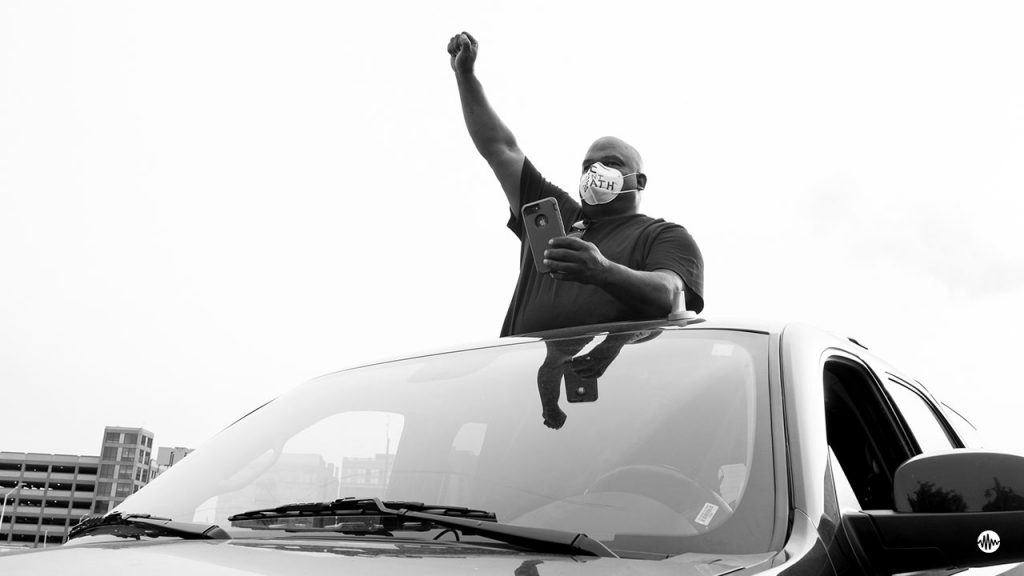
101.9 WDET presents “COVID Diaries: Stories of Resilience.”
Through WDET’s StoryMakers and in partnership with Documenting Detroit, we’ve commissioned five documentary photographers to create a multimedia introspective that taps into our shared experience of the novel coronavirus. Over ten weeks, the artists will create work under a given assignment.
Experience the first six chapters.
This week’s assignment: “Unmasked.”
“Unmasked”
Introduction by Courtney Wise Randolph
Click play to listen to Courtney narrate the introduction to Chapter 7 of “COVID Diaries.”
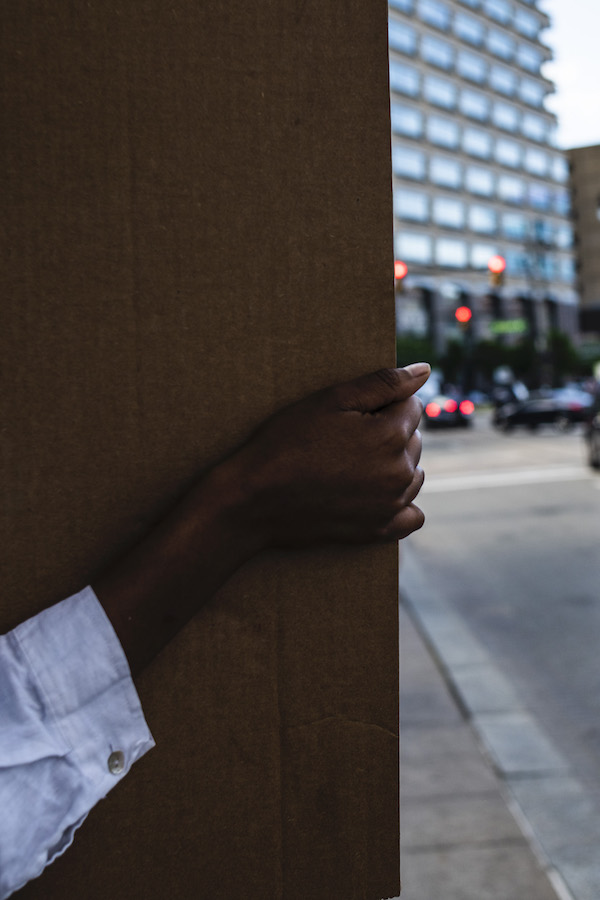
The time of this recording marks 72 days since Jonathan’s gone.
My days are still very much processed in that way — there once was a time he was here; now he is gone. I am still wracked in agony about that fact.
I desperately want to sit around the table in Mia’s kitchen with my Mama and Auntie while Nicolette tells us we’re laughing too loud—but we’re still in the midst of a pandemic that’s killed nearly a dozen people we know. I remembered that when Nicolette called and told me Michigan’s stay-at-home order is lifted and we can share a space together. I didn’t drive right over. I paused to think about what driving over could mean. But these days, people have taken to the streets.
That happened a few weeks ago in Michigan too; the difference now is folks are protesting white supremacy rather than straining to uphold it. Because somehow, in the midst of a pandemic that’s disproportionately killing Black people, so still are racists and the police. Have you truly considered what it says about this nation, that a once in 100 years deadly pandemic isn’t tough enough to momentarily relax America’s system of apartheid? I want to be out there, but I’m afraid to get COVID-19, so I’m at home recording this diary.
I told Nova the people protesting don’t know her, but they love her. They shout Black Lives Matter because it’s true. They know her life is so worthy, they put their bodies on the line and we didn’t have to ask them to.
But I’m still at the house. I spent five hours video-chatting my friends yesterday, and since they’re good friends, it helped me reset. I must actively participate in my liberation. The pandemic just means I have to get creative about how.
Trusted, accurate, up-to-date
WDET is here to keep you informed on essential information, news and resources related to COVID-19.
This is a stressful, insecure time for many. So it’s more important than ever for you, our listeners and readers, who are able to donate to keep supporting WDET’s mission. Please make a gift today.
Join #WDETCOVIDDiaries
Everyone’s experience is different.
WDET is inviting you to share your own COVID Diaries.
It’s simple:
-
Take a picture or video that reflects your own interpretation of the weekly theme.
-
Post your photo, tagging @wdetdetroit and #WDETCOVIDDiaries
Chapter Seven
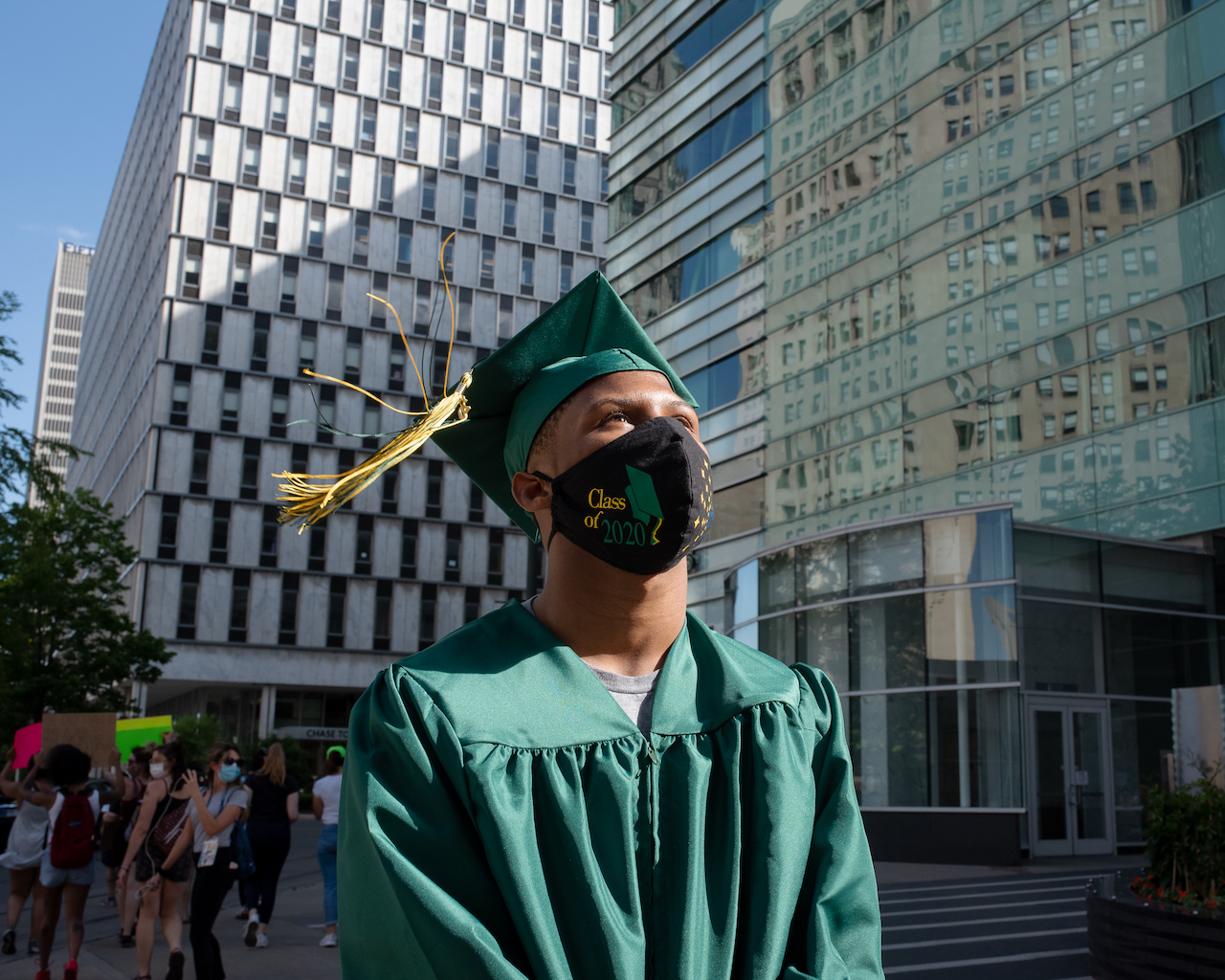
Rachel Elise Thomas
“The question of the week has consistently been: “Are you okay?”
This past week has been something else. It’s been a lot.
Given this platform I would like to say some things real briefly about the current situation our country is in, our city is in, that I am in.
I would say the question of the week has consistently been: “Are you okay? I’m just checking in on you.” I’ve had people who I hadn’t talked to or seen in person in a few years reach out to me and ask my if I’m okay. I’ve had people who recognize me at the protest, even with the mask on, say that they saw me. And I’m like, wow. Maybe I’m naive about my role or how I’m viewed or seen, because I just go about my life everyday just being me, I don’t think much of it.
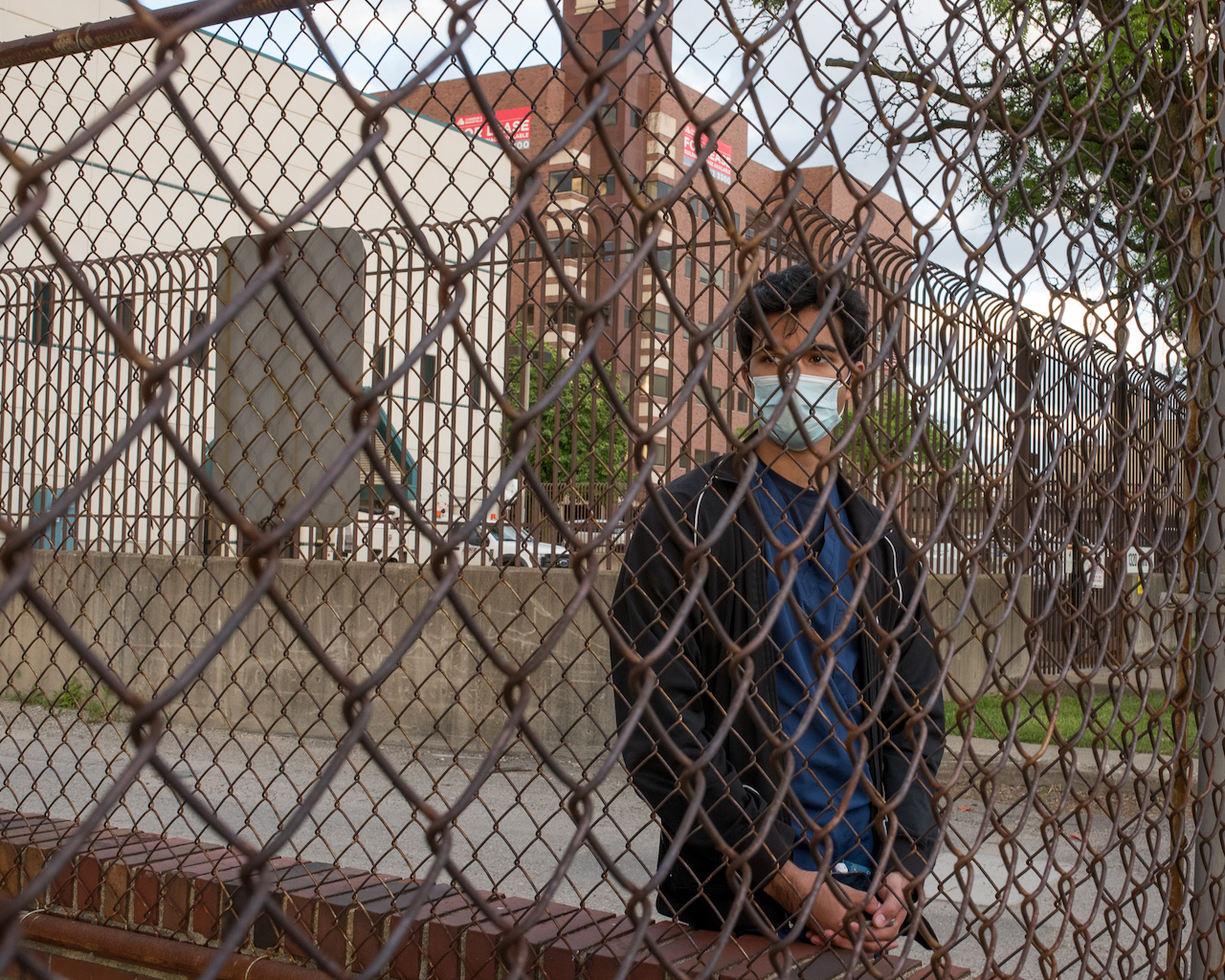
I am overwhelmed with the attention I’ve been receiving for my work. But at the same time I realize that this is for me the Black experience, especially nowadays, this is how we react to police brutality. This is how we come together when our simple, basic human rights are not met, when we’re not treated like human beings. Having to fight so hard for that, that’s something that I’m used to. And it shouldn’t be that way.
So, for everybody who keeps asking me if I’m okay, the answer is no. I’m not okay.
— Rachel
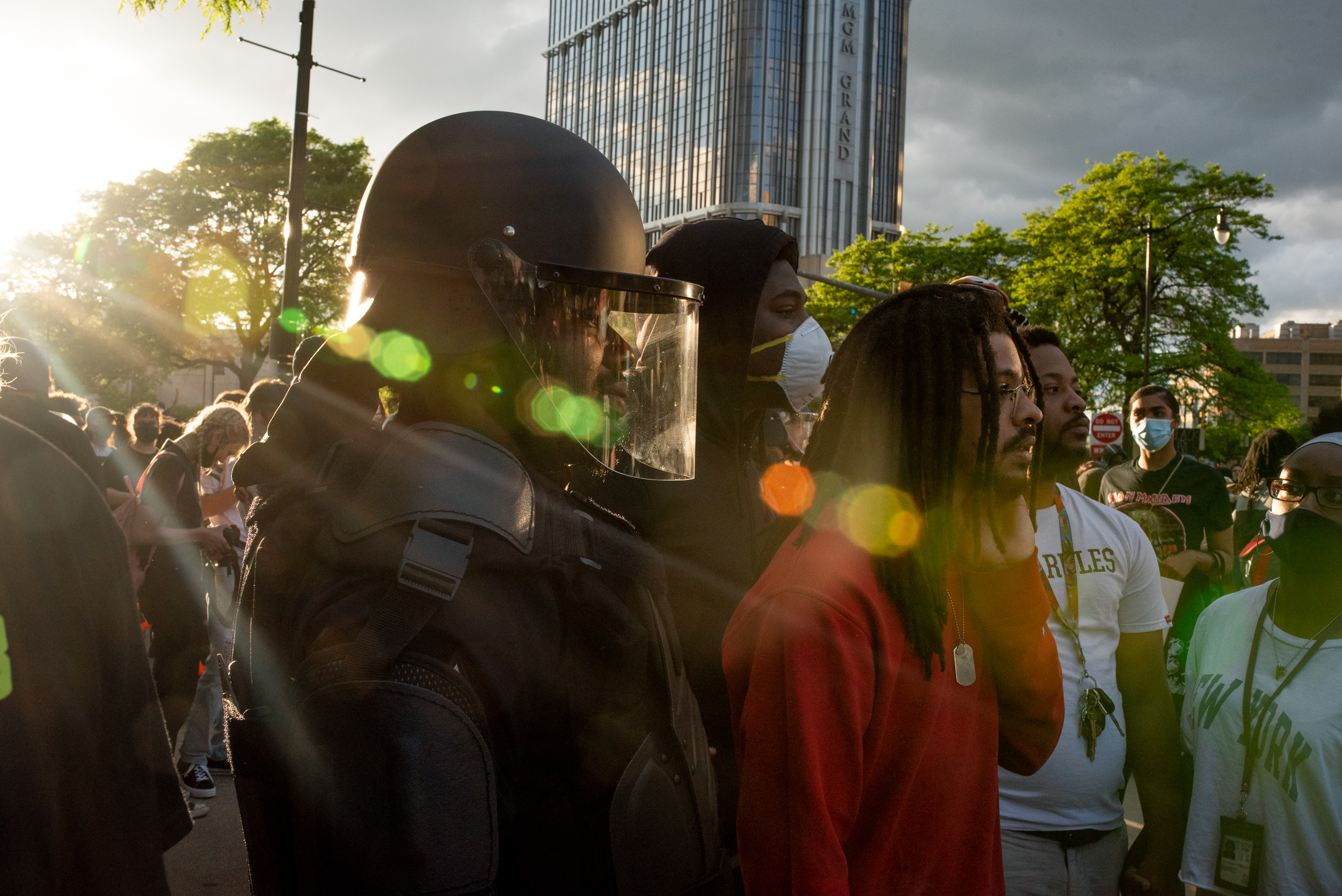
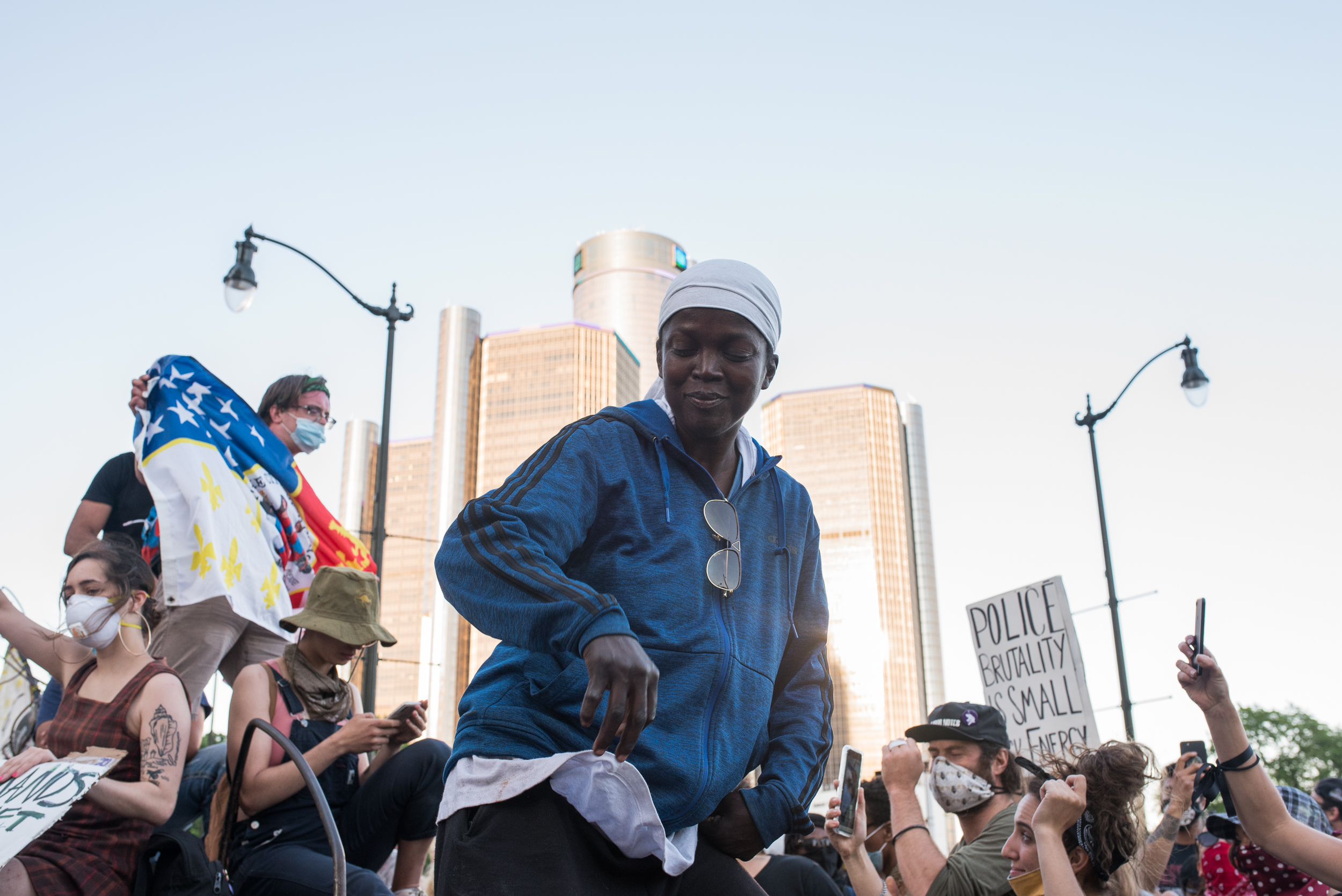

Erik Paul Howard
“Our political values, our policies and all of the things being protested boil down to injustice for profit.”
As a good friend was telling me this week, the pandemic has moved from our living rooms and porches and yards into the streets.
Right now, we’re seeing a struggle that comes from suffering under twin systems of oppression and health and safety. This is the global pandemic. And it is the domestic and international system of prison-for-profit. It’s what it all looks like mixed together. It’s oscillating across institutions and their collective weight is cornering and crushing the most vulnerable.


Our political values, our policies and all of the things being protested boil down to injustice for profit. And it’s adversely impacting our brothers and sisters while it’s building wealth. And this is what it looks like when folks come together for each other to bring attention and deconstruction to that model.
This is solidarity.
— Erik Paul Howard

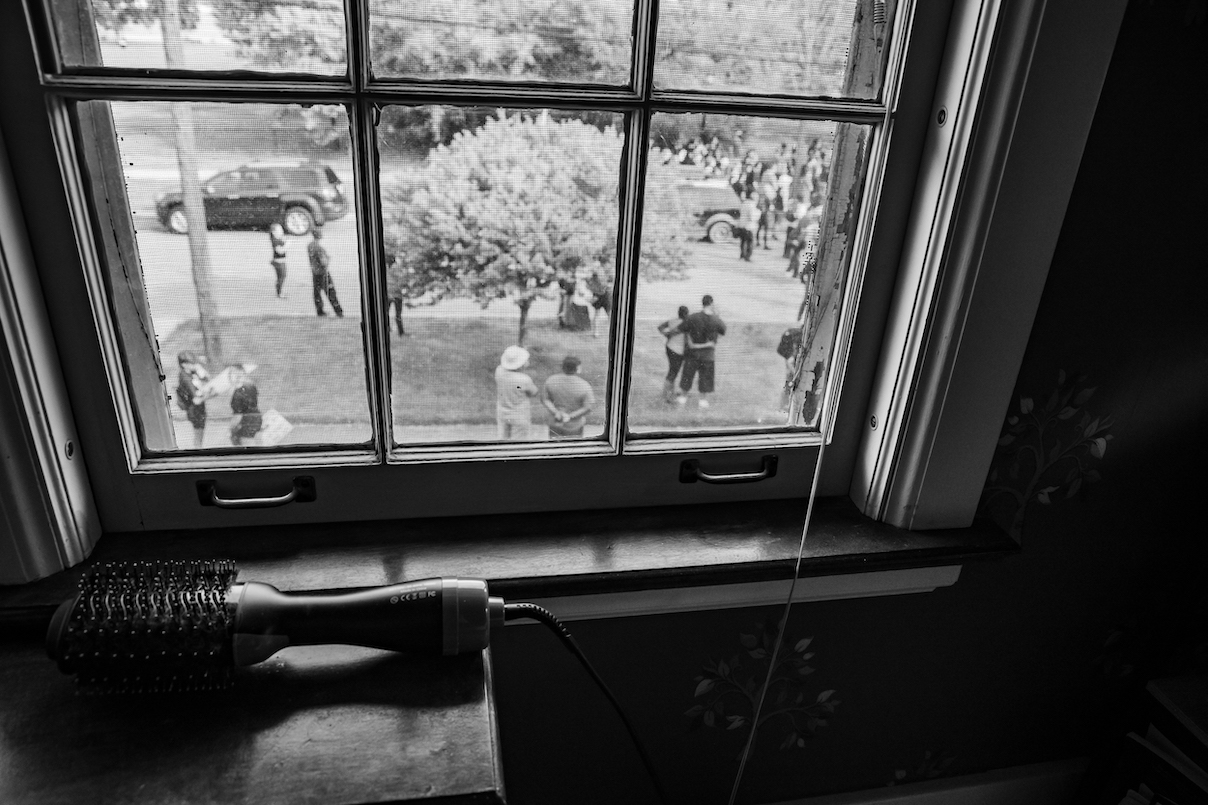
Amy Sacka
“I’ve really focused on how can I do the inner work to see my own bias more clearly, to understand my own privilege and try to be a better human.”
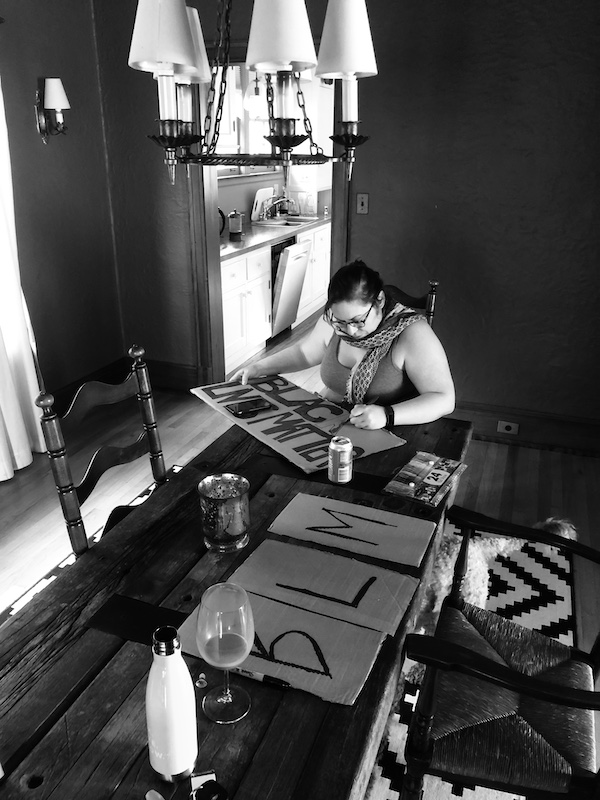
I have done a lot of thinking about how to photograph solidarity during this absolutely heartbreaking time.
Of course, I wanted to show my support to the Black community by being a part of the protest. So some of my photographs show that. But even more important than that, I’ve really focused on how can I do the inner work to see my own bias more clearly, to understand my own privilege and try to be a better human, so that I can do my part in making sure atrocities like the ones we’ve seen won’t happen again.
Initially, I did a lot of inner work, using the United Way’s 21-Day Equity Challenge as a resource to better understand concepts like “white fragility,” “privilege” and “bias,” how I embody them to a certain extent and what I can do to change.
And so you’ll also see some photos that I’ve taken that reflect a quiet or a contemplation because I just feel like I need to remove my voice and listen. Show up and listen.
— Amy
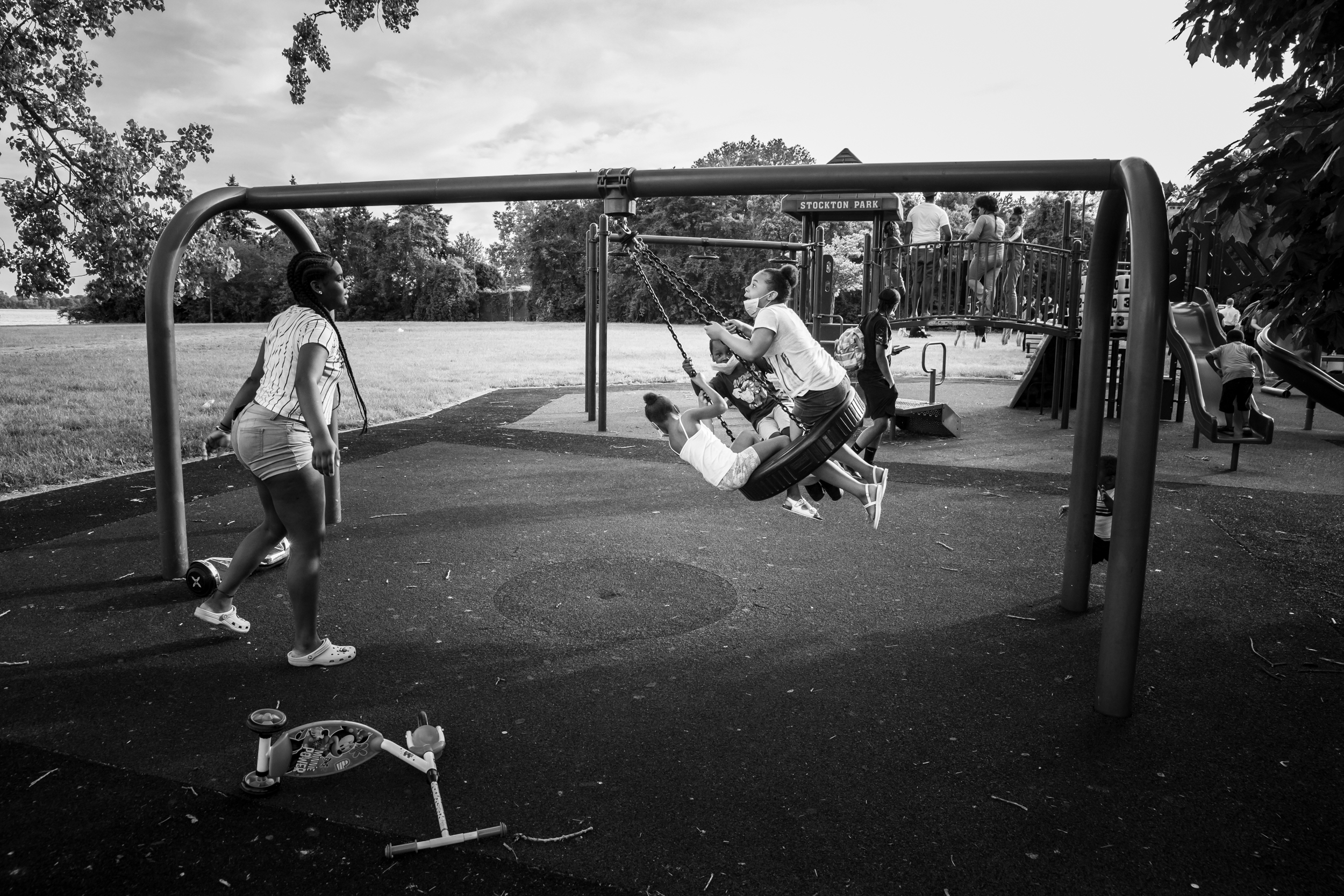
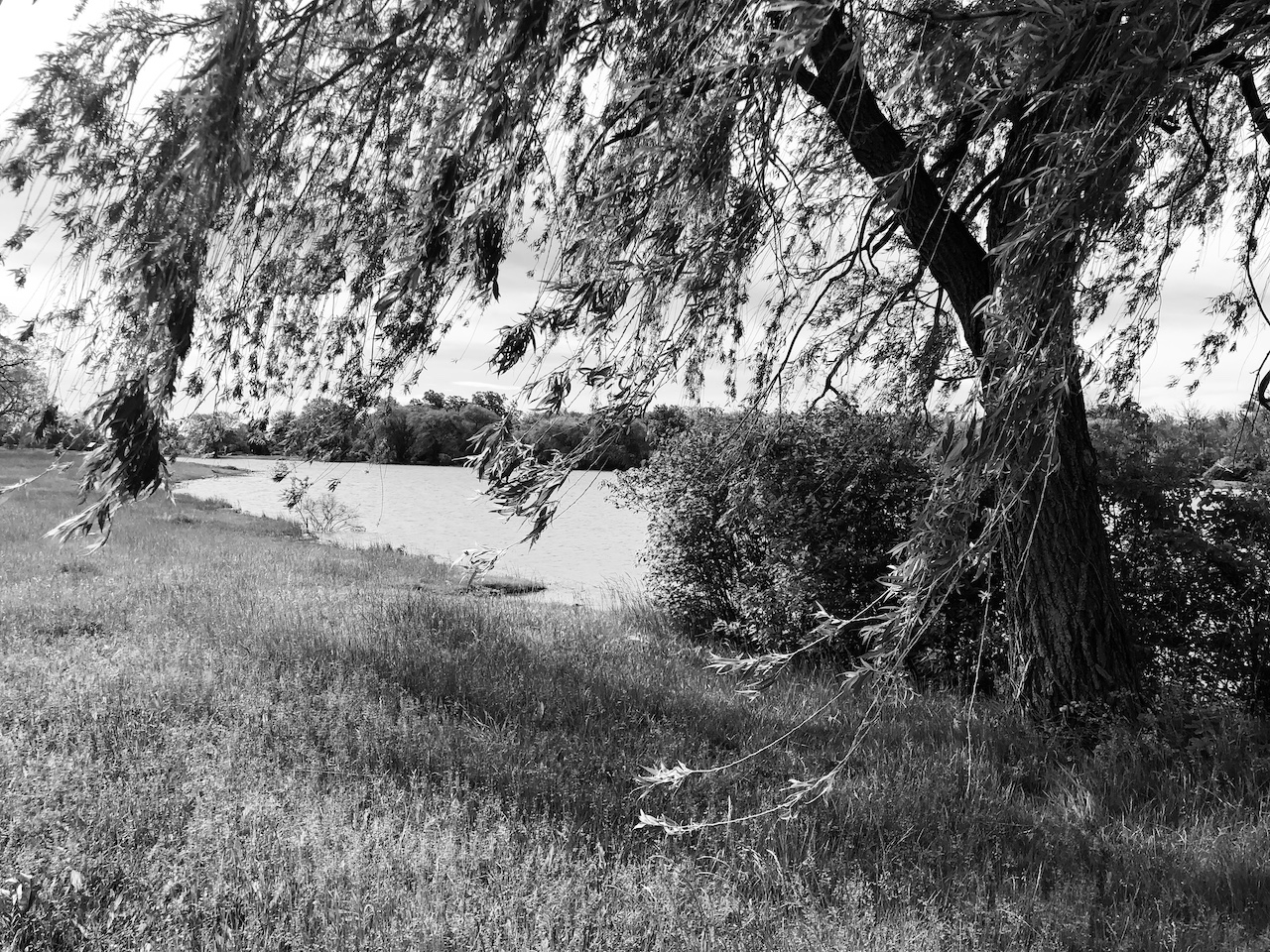
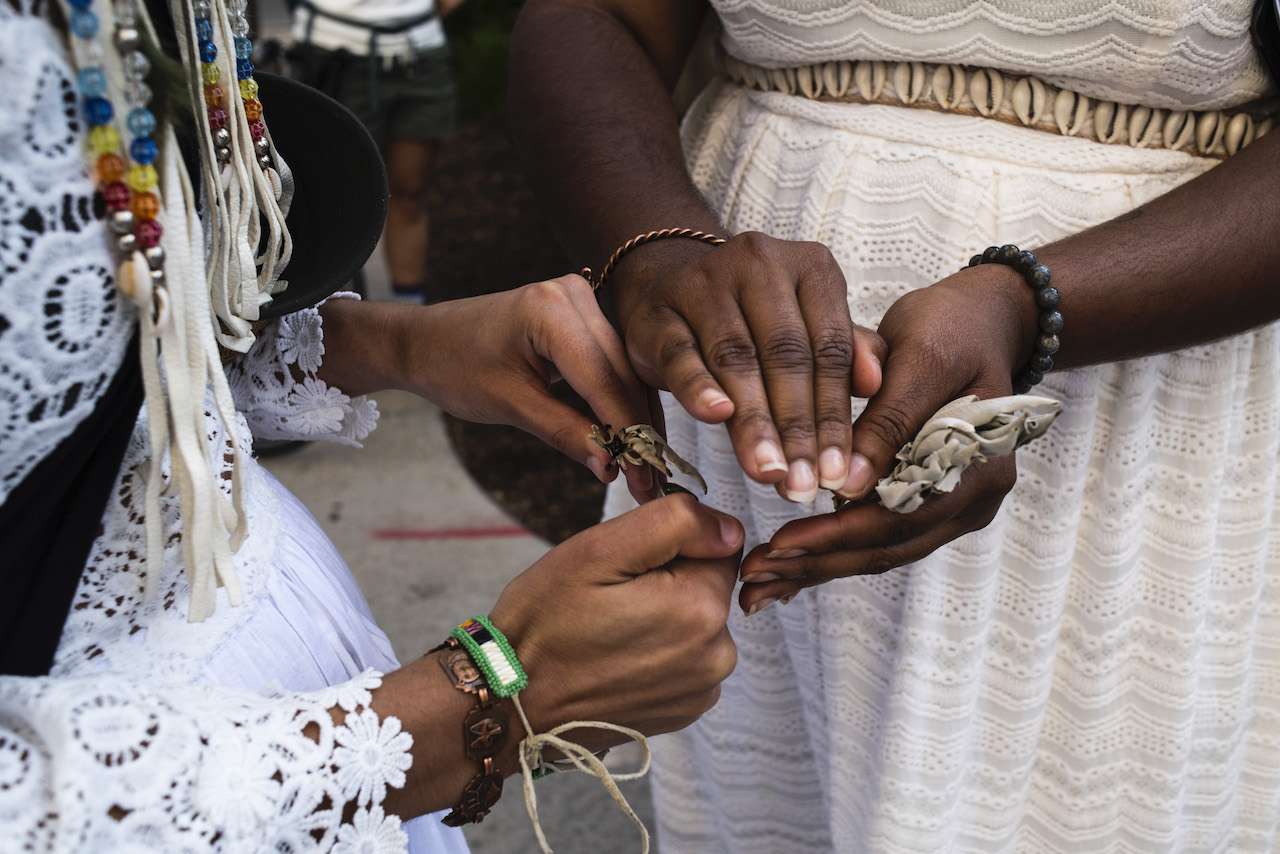
Rosa María Zamarrón
“I’ve had so many conversations with friends. I just don’t know what to say.”
I think the past few weeks, it’s just, I just have no words. I have no words. It’s a lot. And it’s difficult to talk about this without it being probably over two hours long.
I’ve had so many conversations with friends. And I just don’t know what to say. I just invite you to watch documentaries and listen to other things that will make you uncomfortable.
That’s all I got man. That’s all I got.
— Rosa María

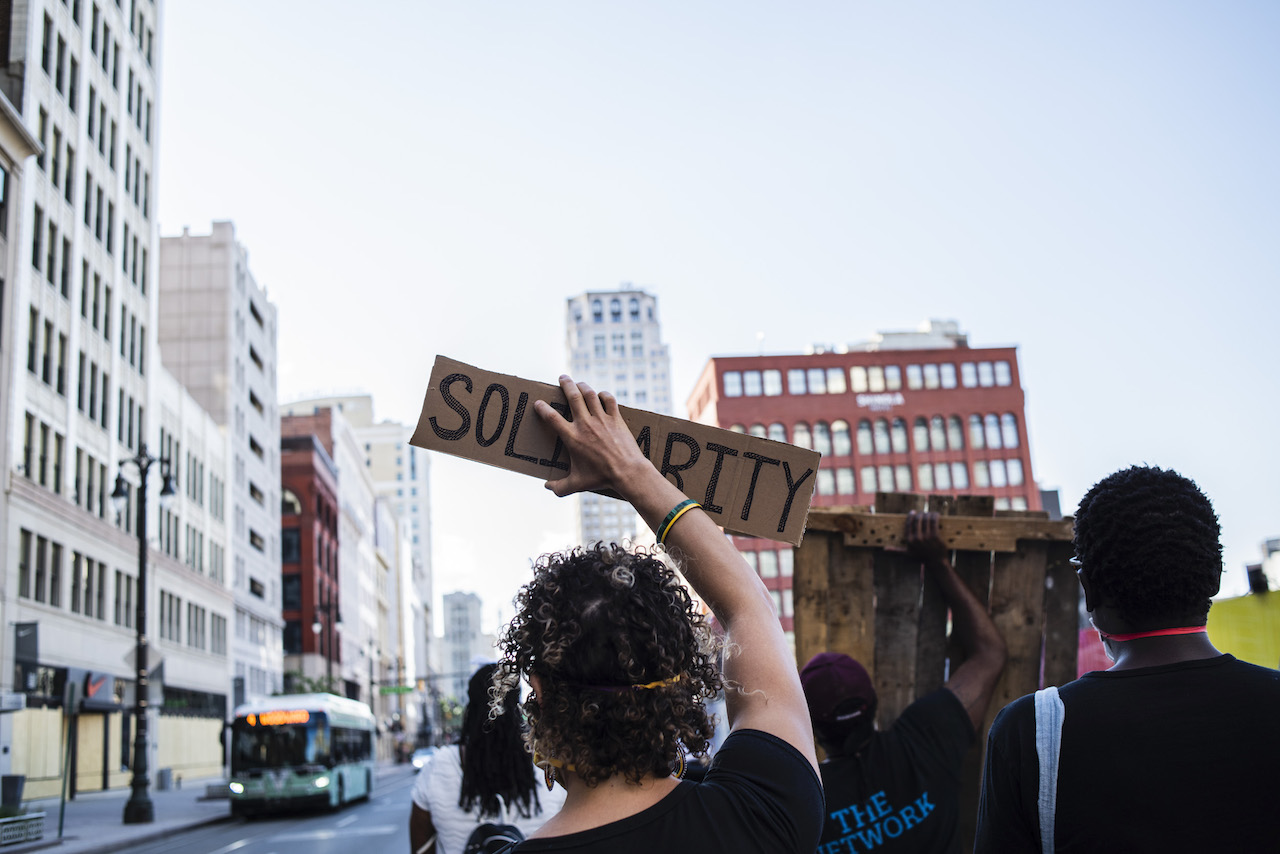
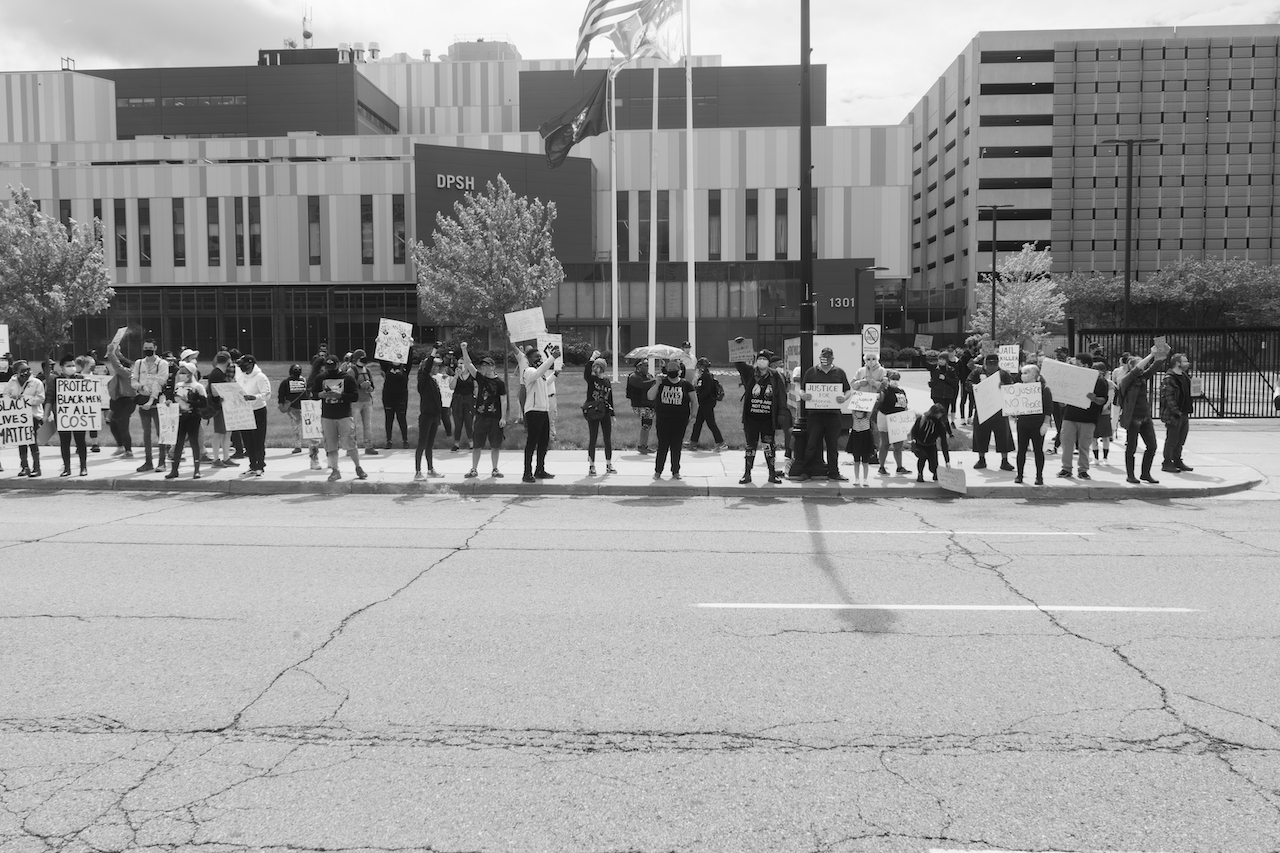
Darryl DeAngelo Terrell
“I’m struggling. Emotionally, mentally, my body feels heavy. It’s just grief.”
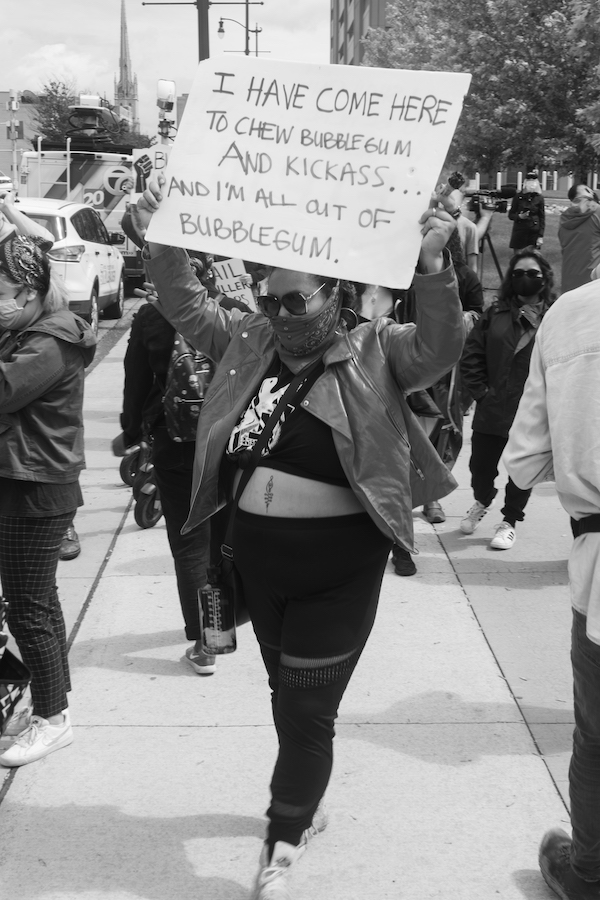
It’s a weird week, right?
Because it’s the week of my birthday. It’s also the week that a horrendous amount of police brutality situations have come to surface. And I’m struggling. Emotionally, mentally, my body feels heavy. It’s just grief. So there’s that.
I stopped by family house because I really just felt that I needed family. My family helps me a lot with finding some joy amidst the chaos.
— Darryl
